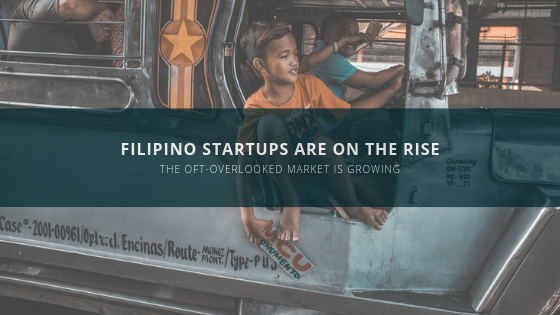by Tech Collective

‘Tech startup boom’ has become quite the buzz-phrase for Southeast Asia, with various global reports praising the region’s potential for foreign investment, startup viability, and economic growth as a whole.
The Philippines is no exception and in many ways could be considered one of the pack leaders in the region’s tech startup scene. With their very first Unicorn, Revolution Precrafted under their belt–a startup which reached $1 billion USD in value in its first two years of operation–sizeable investments in infrastructure and a range of government-backed incentives, 2018 was a definitive year for the nation. As the end of the first quarter of ‘19 rapidly approaches, the region is again proving that when it comes to tech startups, the only way is up. Let’s delve into the current tech startup climate in more detail:
The unicorn leads the pack
As well as being the nation’s first Unicorn–rubbing shoulders with e-Commerce giants’ Lazada and Tokopedia–Revolution Precrafted won the Startup of the Year title at the ASEAN Rice Bowl Startup Awards in 2018–and justifiably so.

This online platform connects real estate buyers and developers with a vast range of architects, artists, and designers to create a highly exclusive, pre-constructed living spaces. After signing a $3.2 billion USD deal to manufacture luxury condominiums and villas in Dubai’s renowned “The World Islands” in April 2018, the startup went on to secure an additional $1.2 billion USD for the Okkyin project in Myanmar with KT Group. And it doesn’t stop there.
Read our interview with CEO Robbie Antonio about his plans for the company
The PropTech startup is already looking to raise another $100 million USD in a Series C funding during 2019 and expand into 55 countries with sights set on securing projects in 100 nations by 2020. Although this may sound ambitious, with experts coining the company as “The IKEA of homes”, the disruptive innovation of the project is irrefutable. Each of these luxury living spaces are composed of a series of modular parts that are easily assembled on-site–just like Lego bricks–which makes the product globally adaptable and supports the rapid upward trajectory of the company’s success.
SendFriend takes centre stage
Tech startups across the board have dipped their toes into the Filipino startup scene with success stories spanning from PropTech, MedTech, and right through to e-commerce. However, 2019 is shaping up to be a major year for FinTech in particular, and the blockchain-backed remittance startup SendFriend is a core example of this.
In February this year, SendFriend raised $1.7 million USD from a total of eight investors. The startup enables Overseas Filipino Workers (OFWs) to transfer and convert funds from USD to PHP securely and at the lowest rate available. In a press conference following the funding round, CEO David Lighton voiced that the funding will be used to build the team, develop marketing methods, and focus on community engagement.
The success of SendFriend can be attributed to the fertile soil for FinTech growth and innovation, which comes largely from the population demographics and mobile penetration. According to The Philipines FinTech Report 2018, the nation has a population of just over 100 million, with just 31% of adults possessing a bank account and 58% possessing a mobile device, demonstrating major room for expansion in the sector.
Although payment startups such as Ayannah, a provider of mobile commerce and payment services and Coins.ph, by Betur Inc., are key players in the market, 99% of all transactions in the nation are still made using cash. Alternative payment startups such as Acudeen, a peer-to-peer online marketplace, are increasing in popularity as are blockchain and cryptocurrency startups, accounting for 16% of the FinTech sector startups.
With the government currently formulating policies to drive innovation in this sector, and a clear goal to increase digital payments to account for 20% of transactions by 2020, it is likely that the remainder of 2019 will see more startups jumping aboard the FinTech train.
The Philippines as a hub
The passing of the “Innovative Startup Act,” by the Filipino government in 2018 featured tax exemptions, free access to government services, and increased efficacy in business permit processing has been a major drawcard for bringing in foreign investment into the region.

One clear example of this is Citystate Group, a Singapore-based group of companies that made a Seed investment in Ticket2Me, a blockchain-powered ticketing startup from the Philippines. Even though the $350,000 USD was raised at the end of February 2019, the startup is already gearing for immediate expansion into other Southeast Asian markets. With the nation proven to be a lucrative startup base, it is likely to be a common theme that the nation will be used as headquarters for startups that have their primary goal and target demographic outside the Philippines.
Here’s why we think The Philippines should be considered as your startup’s HQ
As the Philippines has proven itself as a contender for heavy hitter startups with local and foreign entrepreneurs recognising the advantages of the government-backed incentives. Don’t be surprised to see more activity and, possibly, even the next unicorn to originate from this Western Pacific nation.


Leave a Reply